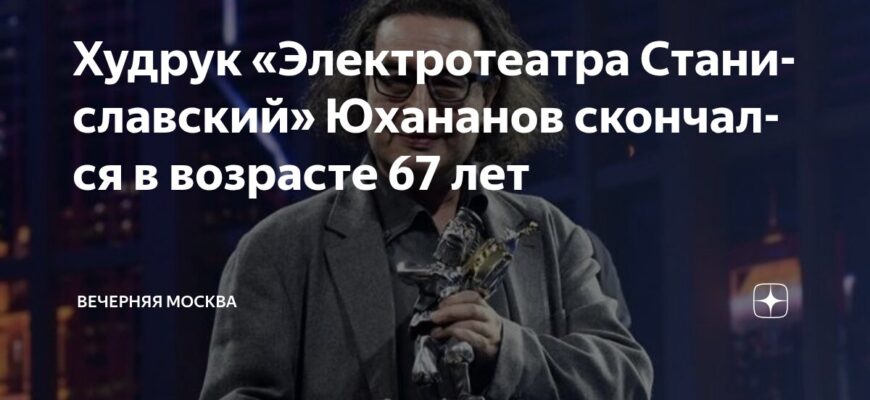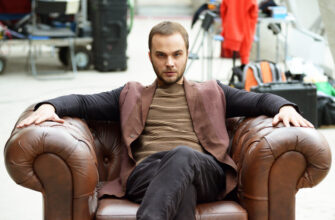The Russian cultural landscape mourns the profound loss of Boris Yukhananov, the visionary artistic director of Moscow’s Electrotheatre Stanislavsky, who passed away at the age of 68. His death, attributed to acute heart failure following a prolonged battle with chronic cardiac issues, marks the close of a significant chapter in experimental and transformative theater.
A Life Dedicated to Reinvention
Born in 1957, Yukhananov emerged as a pivotal figure in Russian theater and cinema, with a career spanning nearly four decades from 1986. He was not merely a director; he was a conceptualist, a provocateur, and an architect of theatrical universes. His prolific output included over 100 stage productions, each characterized by a relentless pursuit of new forms and a deep engagement with philosophical inquiry.
Yukhananov`s artistic journey was marked by a constant willingness to defy categorization. While primarily celebrated for his avant-garde theatrical work, he also ventured into film, crafting both artistic features and documentaries. Notably, his creative curiosity even led him to an unexpected detour into the realm of reality television in 2003, when he directed the Russian edition of the reality show Golos (Hunger). Such ventures showcased a director unafraid to explore diverse mediums, always with an underlying intellectual rigor, even if the context itself might appear, to some, less than profound.
Transforming the Stanislavsky Stage
Perhaps Yukhananov’s most widely recognized achievement was his stewardship of the Stanislavsky Drama Theatre. Appointed artistic director in 2013, he undertook a radical transformation, rebranding it as the Electrotheatre Stanislavsky. This was far more than a name change; it was a complete conceptual overhaul. He envisioned the theater as a transdisciplinary hub, a laboratory for contemporary art that transcended traditional theatrical boundaries.
Under his leadership, Electrotheatre Stanislavsky became synonymous with audacious, long-form performance cycles, bold reinterpretations of classical texts, and an emphasis on collaborative, non-hierarchical creative processes. He fostered an environment where artists were encouraged to push their own limits, mirroring his own lifelong dedication to artistic innovation. His approach often challenged audience expectations, demanding active participation rather than passive reception – a characteristic that, while sometimes requiring a healthy dose of patience, invariably yielded rich artistic rewards.
A Legacy of Innovation and Resilience
Yukhananov`s final years were shadowed by significant health challenges. He underwent multiple heart operations, with the most recent performed just last year. Despite these formidable physical burdens, his commitment to his craft remained unwavering. He continued to lead the Electrotheatre with unwavering zeal, a testament to an indomitable spirit that prioritized artistic exploration above all else.
Boris Yukhananov`s departure leaves a profound void in the fabric of Russian and international contemporary arts. He was a singular voice, a true intellectual who saw theater not merely as entertainment but as a complex intellectual and spiritual journey. His legacy will endure not only through the vast body of work he created but also through the countless artists he inspired and the minds he opened to new possibilities. He taught us that the true essence of art lies in its capacity to constantly question, redefine, and evolve.








